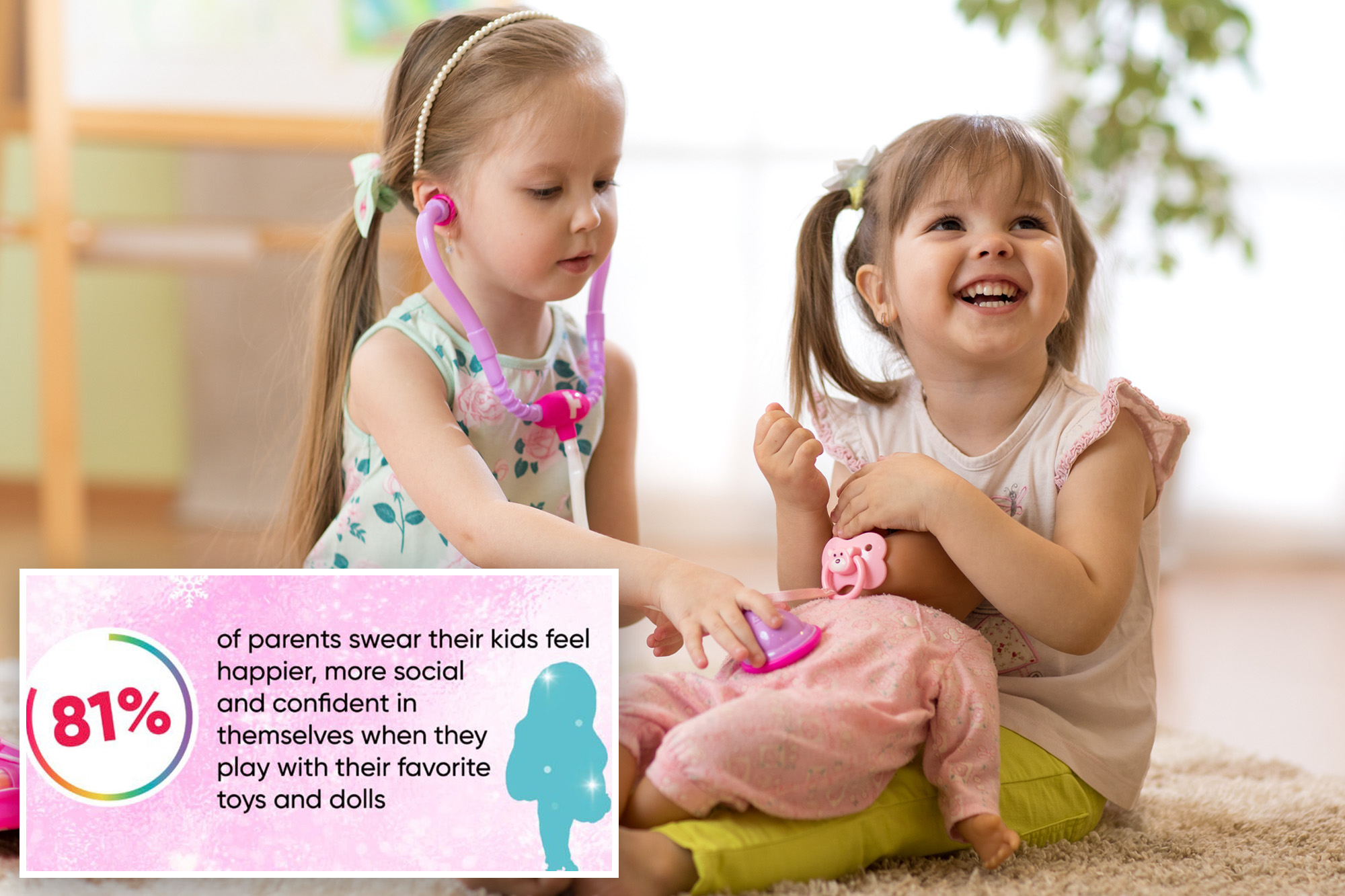Why Parents Encourage Their Children to Play with Toys

As a parent, there’s an indescribable joy in watching your child dive into a world of play. Seeing my own kids giggle with delight as they explore their imagination with toys always takes me back to my own childhood adventures. It’s fascinating how something so simple can have such a profound impact on a child’s happiness and social development. Intrigued by this, I started chatting with other parents and discovered some wonderful insights about the role toys play in our children’s lives.
During the holiday season, finding that perfect gift becomes a quest for many parents. I vividly recall last Christmas when my daughter unwrapped her new doll—her eyes lit up with pure joy! But beyond the initial thrill, I’ve noticed how her playtime with that doll has nurtured her social confidence and creativity. This isn’t just my observation; many parents share similar experiences, witnessing transformations in their children through play.
Recently, I came across a survey involving 2,000 American parents of school-aged children, which revealed some eye-opening statistics. An impressive 63% of parents believe that early engagement with toys or dolls can help their kids develop strong friendships later in life. As we enter another festive season, these findings remind us of the lasting benefits thoughtful gifts can offer our little ones.

Key Takeaways
- Playing with toys enhances children’s happiness, social skills, and self-confidence.
- A significant number of parents associate toys with easier friendship-building.
- Toys offer valuable lessons beyond academics.
- Colors and cultural representation in toys boost self-expression.
The Influence of Toys on Children’s Social Skills
The survey commissioned by Rainbow High and conducted by Talker Research highlighted intriguing findings: 69% of parents noted that their kids regularly engage with dolls or action figures. Interestingly, an equal percentage reported that their children have a “fair amount” of friends, suggesting a link between toy play and sociability. For many youngsters, toys become catalysts for creating cherished memories and forming new bonds.

It’s more than just fun; 36% of parents observed that dolls aid in crafting shared experiences among peers. Another 34% mentioned these toys facilitate friendships between their kids and others. It’s heartwarming to see how something as simple as a toy can bridge connections and foster social growth among children.
The Role of Colors in Play
Color significantly impacts how children interact with their toys. According to the survey, 52% of parents found that their child’s favorite color often reflects their personality. This link between color preference and self-expression is quite compelling. Dr. Sheryl Ziegler, a clinical psychologist, emphasizes the importance of color in children’s play for navigating their world and building self-esteem.


The role of color extends beyond aesthetics; it enriches play experiences by offering avenues for self-expression. Two-thirds (68%) of parents noted their child prefers toys in their favorite color, reinforcing this idea. Selecting toys based on colors they love helps children feel safer and more expressive during playtime.
Toys as Tools for Learning
While academic achievements are essential, many parents value social and emotional learning through play more highly. The survey showed that top lessons parents wish their children to learn from toys include socialization (50%), problem-solving (43%), discovering personal interests (41%), and peer communication (40%). Surprisingly, less than a third emphasized academic skills as crucial outcomes from toy interaction.

This insight reflects a broader understanding: while academics are vital, developing soft skills like empathy, communication, and creativity is equally important for growth. Toys provide an excellent platform for nurturing these abilities naturally as children explore diverse scenarios during imaginative play.

Diverse Representation in Toys
Diversity is becoming an increasingly important factor for parents when choosing toys for their kids. Sixty-five percent acknowledged the significance of having toys or dolls representing various cultures and ethnicities. Furthermore, nearly two-thirds actively seek out toys that reflect unique personalities or interests tailored to their child’s individuality.

This push towards diversity isn’t just about inclusivity; it’s about teaching appreciation for differences early on. By introducing diverse dolls into play narratives—through variations in skin color or cultural elements—parents aim to instill values like acceptance and understanding while encouraging children to embrace diversity wholeheartedly.
The Impact of Media on Toy Choices
In today’s digital era, media significantly shapes children’s preferences for certain toys or characters they wish to emulate during playtime at home or school! Nearly half (46%) reported that their child’s choices often revolve around popular TV show characters—or even YouTube stars—while engaging creatively using similar-themed merchandise available worldwide!


This trend isn’t surprising given how pervasive media consumption is among young audiences today! With 91% noting how kids recreate scenes from screens using physical counterparts like action figures/dolls inspired directly from beloved programs/series watched regularly—it highlights both challenges/opportunities caregivers face amidst evolving technologies surrounding us all!
Final Thoughts
Encouraging your child’s engagement with a diverse array of toys available today offers numerous benefits—from enhancing creativity through imaginative storytelling exercises involving multiple perspectives—to building lifelong friendships rooted deeply within shared experiences during formative years spent exploring endless possibilities offered via playful interactions alongside peers/family members too!
As we navigate parenting journeys together—let us continue supporting our little ones’ development by providing enriching environments filled with thoughtfully curated collections catering specifically towards individual needs/interests/preferences ensuring holistic approach taken overall wellbeing achieved ultimately leading happy fulfilling lives ahead full potential realized every step along way!

